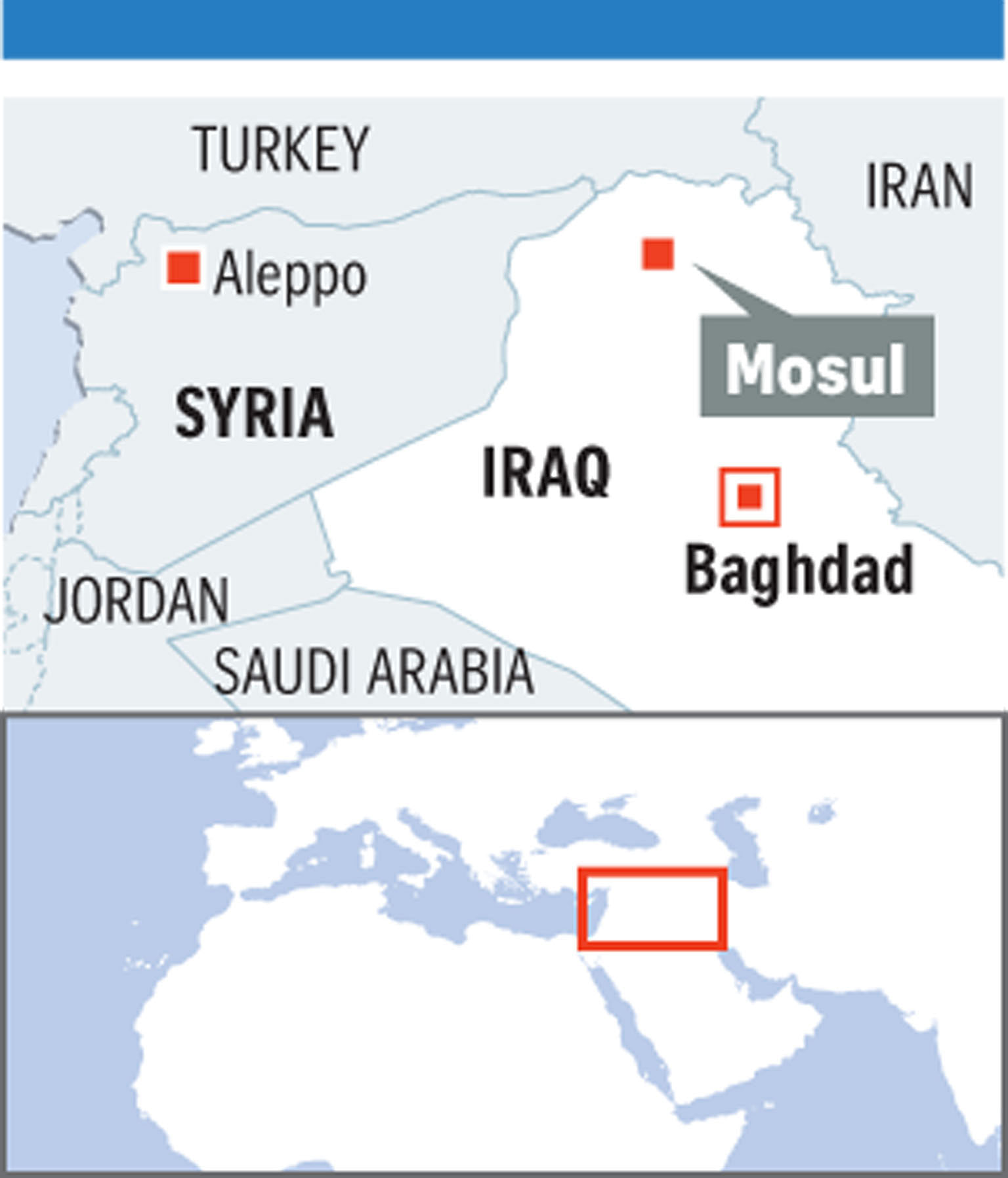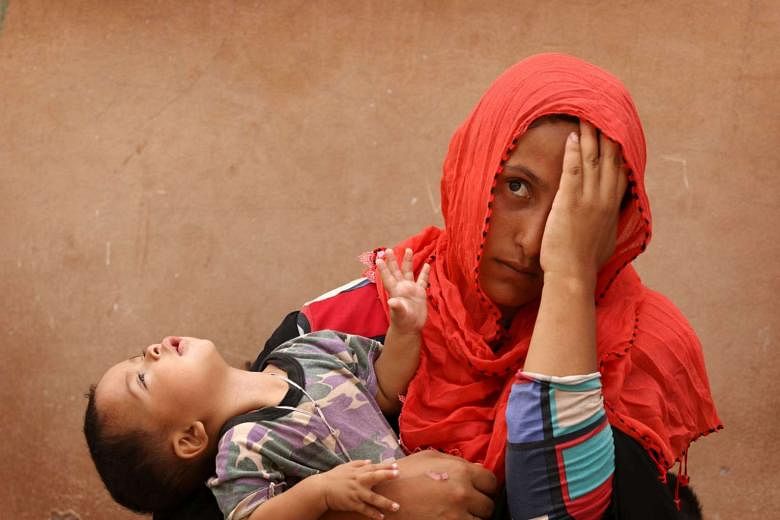DEBAGA (Iraq) • The battle for the northern Iraq city of Mosul could force a million people to flee their homes.
The United States-backed offensive to retake Mosul from the militants could begin in less than a month but, even before it begins, aid agencies are struggling to shelter families already displaced by the conflict against the Islamic State in Iraq and Syria (ISIS).
The camps in northern Iraq are full. Debaga camp, 65km south-east of Mosul on the edges of its northern region of Kurdistan, was built a year ago for 700 families. It now houses 10 times as many, most of whom fled fighting as Iraqi forces retook territory south of the city.
Iraq's finances have been squeezed by falling oil prices and years of grinding battles to retake territory, limiting the government's ability to respond.

The United Nations (UN) put out an emergency appeal for US$285 million (S$390 million) to meet the needs of those expected to flee but says it is facing a shortfall of US$165 million to provide the most basic emergency response.
The UN is scrambling to build more standard camps like the one at Debaga. But if numbers reach the highest predictions, they will be able to handle only a fraction of those fleeing.
About two million people lived in Mosul before ISIS took over. The UN estimates that between 1.2 million and 1.5 million remain. Some Iraqi officials think there are more because of the number who moved into the city to escape Iraqi army offensives to the south.
"Almost every victory is accompanied by a simultaneous humanitarian crisis," said Ms Lise Grande, the UN humanitarian coordinator in Iraq.
Those who find no room at the new camps could turn to the UN's emergency camps - where assistance will be even more basic. Some may flee into the desert towards the Syrian border, making it difficult for aid agencies to reach them.
"The military campaign is going to take off soon and, on the humanitarian side, we aren't yet ready," Ms Grande said.
-
TOP 10 HOST NATIONS FOR REFUGEES
-
1. JORDAN: 2.7 million
2. TURKEY: 2.5 million
3. PAKISTAN: 1.6 million
4. LEBANON: 1.5 million
5. IRAN: 979,400
6. ETHIOPIA: 736,100
7. KENYA: 553,900
8. UGANDA: 477,200
9. DEMOCRATIC REPUBLIC OF CONGO: 383,100
10. CHAD: 369,500
AGENCE FRANCE-PRESSE -
•Based on figures from the United Nations High Commissioner for Refugees.
The Iraqi government has dropped leaflets over Mosul asking people to stay in their homes during the offensive. In previous battles, for Fallujah and Ramadi, the cities had been emptied. But civilians are risking their lives to leave.
Umm Abbas (not her real name), 40, was separated from her husband in August when he went into Mosul to sell vegetables as an offensive began and Kurdish forces moved towards their farm. As the family fled towards the Kurdish soldiers, her 12-year-old nephew was killed by a suicide car bomb.
"Now we've been here for a month and a half with no tent. We live here in the yard," she said, pointing to the packed school behind her.
About 3.3 million people have been displaced in Iraq over the past 2½ years, while the conflict in neighbouring Syria has displaced millions more.
They are just part of the global refugee crisis, which humanitarian groups say is being unfairly shared, with just 10 countries hosting the majority of refugees. Wealthy nations are being urged to step up their response.
Fighting in Syria, Afghanistan, Burundi and South Sudan has pushed the total number of refugees to 21.3 million, according to the United Nations High Commissioner for Refugees.
In a report published yesterday, rights group Amnesty International said the unequal sharing was exacerbating the crisis as the main host countries, most of them poor, were unable to provide adequately for all refugees, pushing many to embark on perilous journeys to Europe and Australia.
WASHINGTON POST, REUTERS

